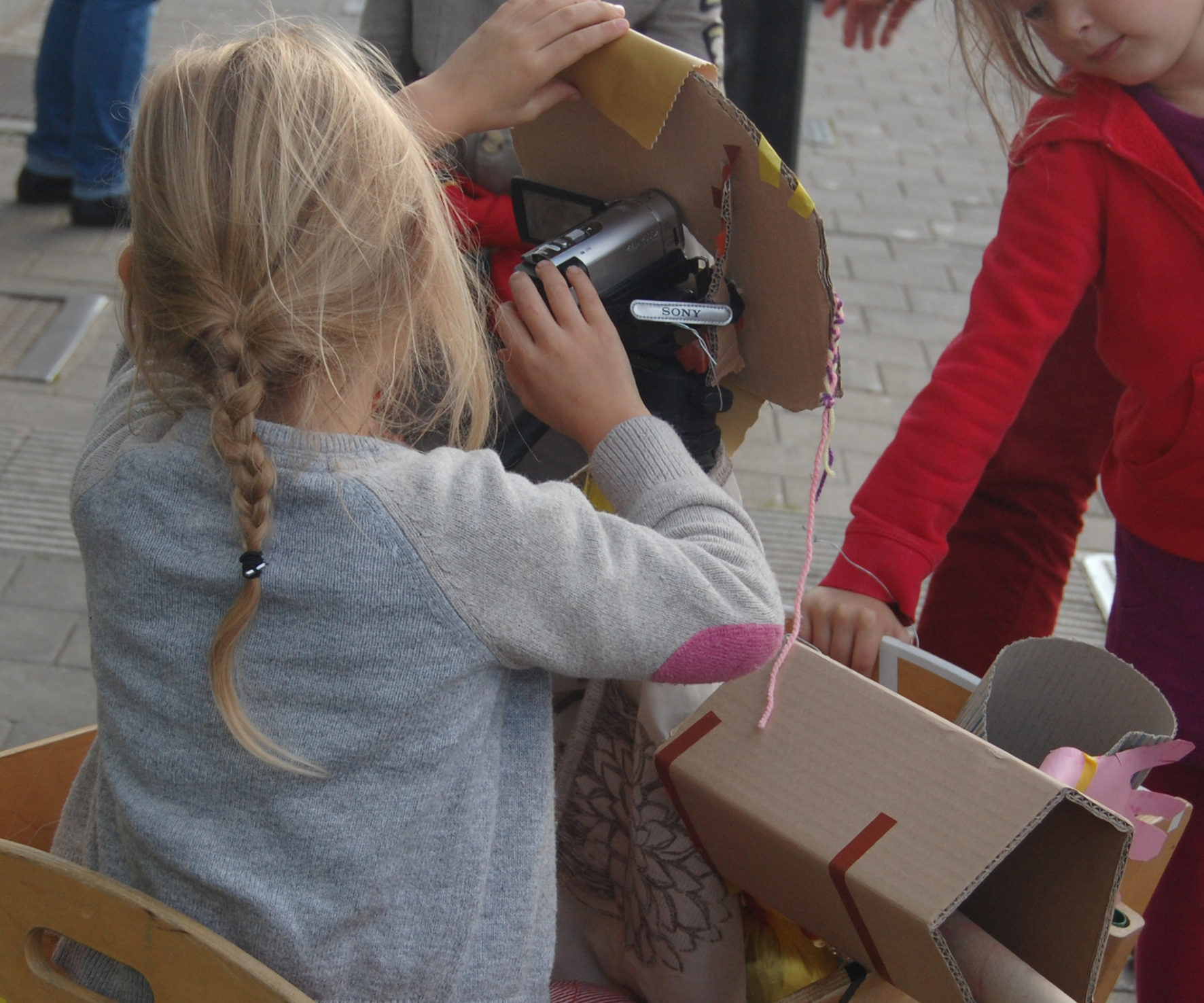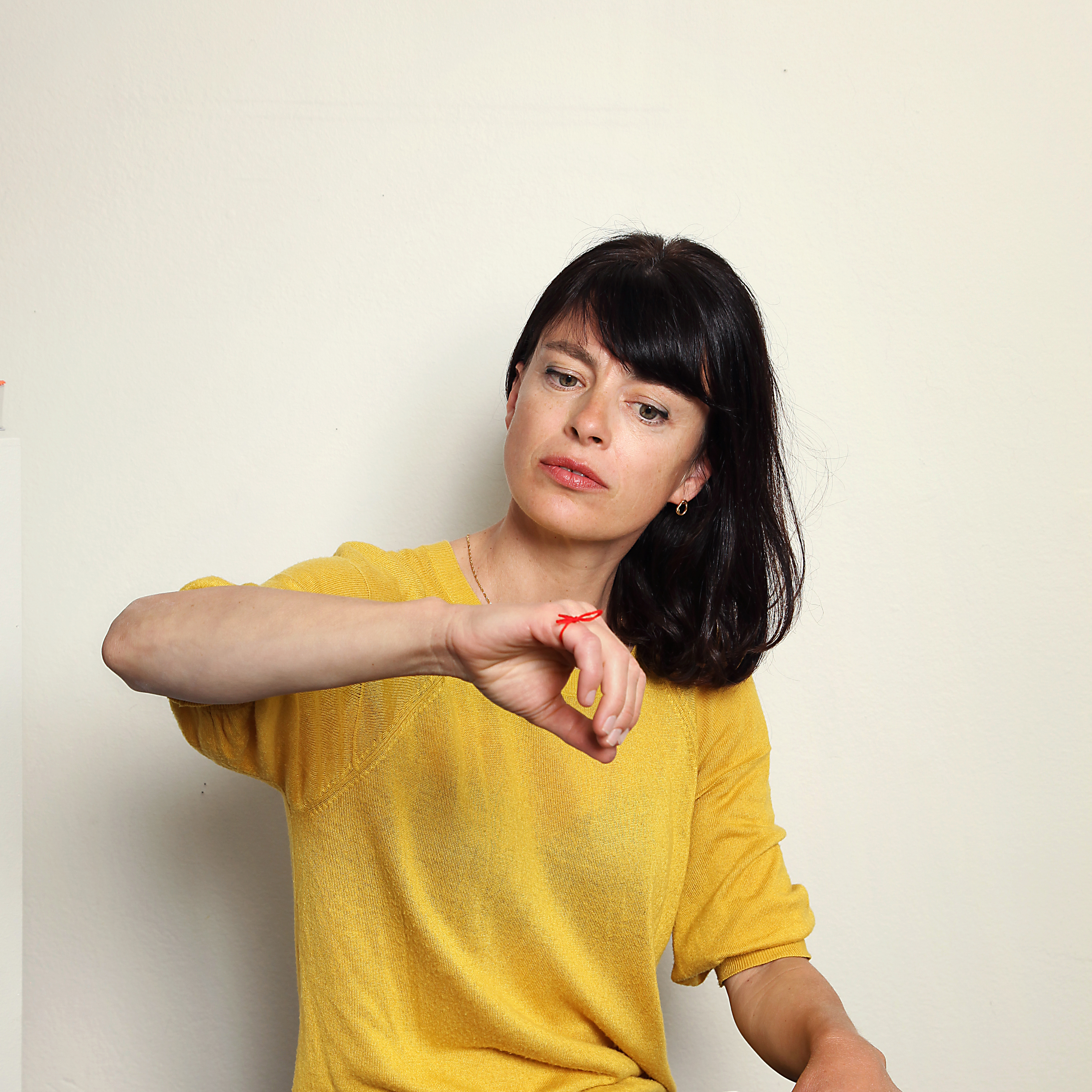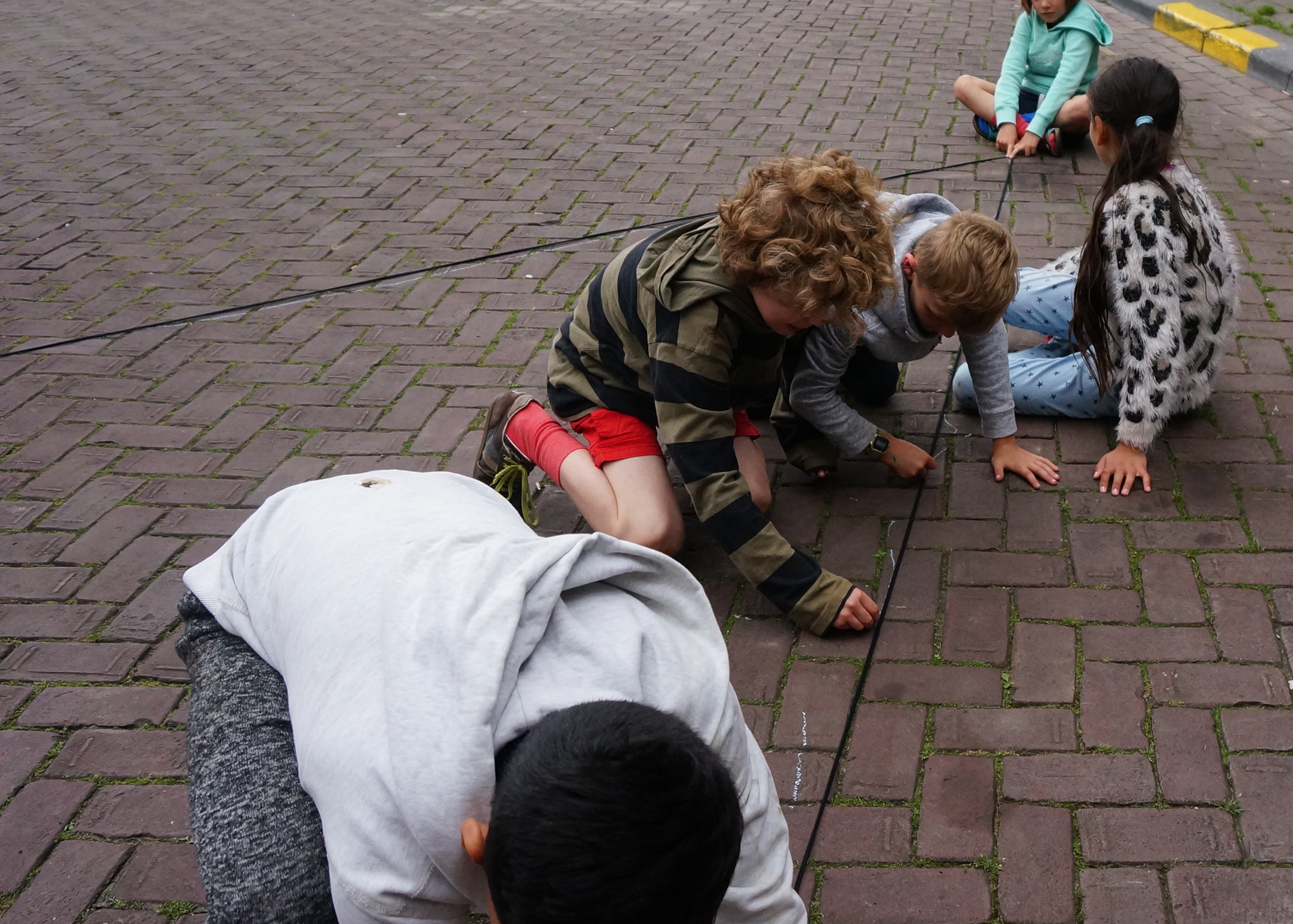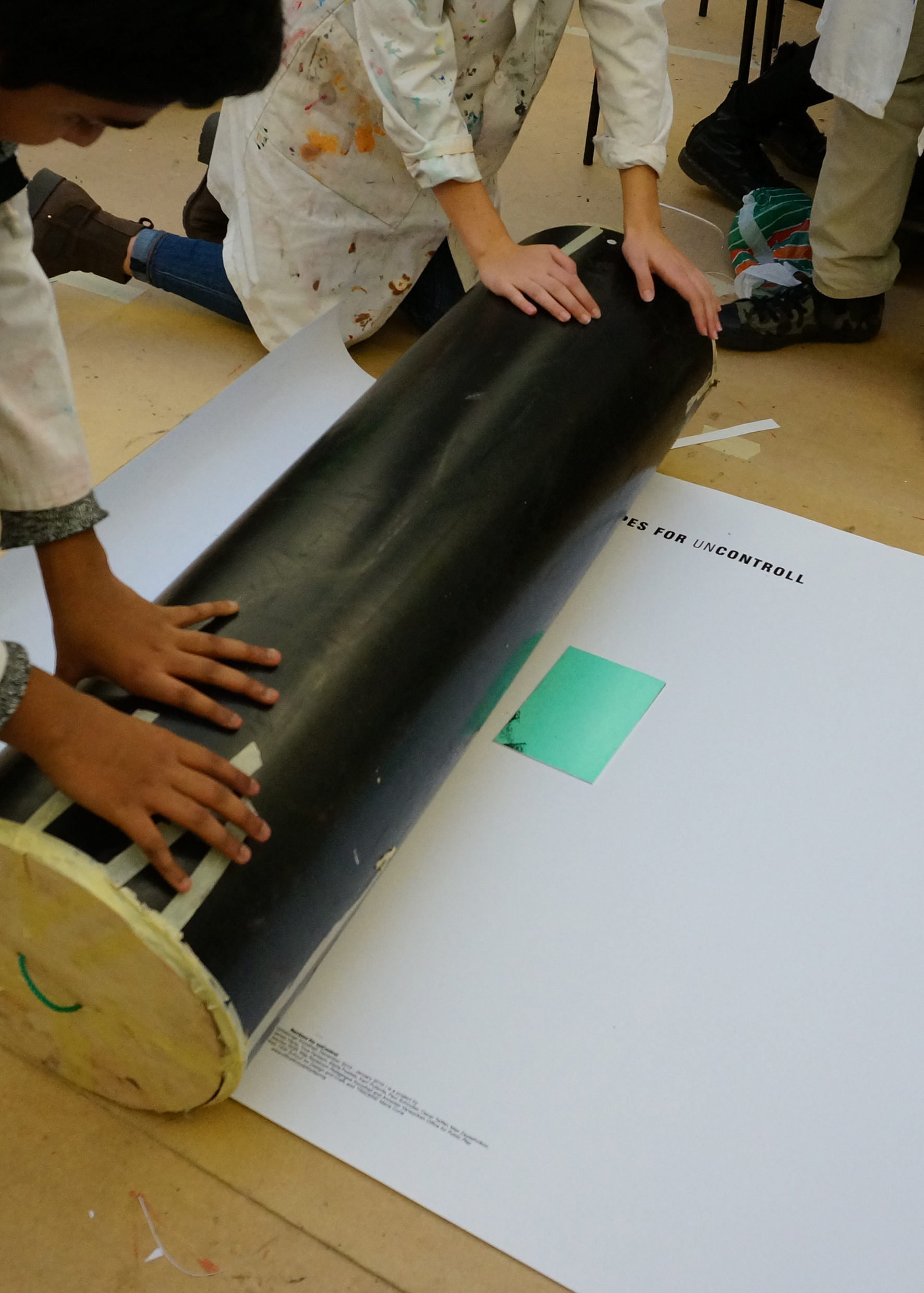- Home
- News and events
- Find news
- Children can influence the design process on their own terms
Children can influence the design process on their own terms
 How can openness and ambiguity help to develop collaborative design processes where both adults and children are involved on equal terms? On June 8, Annelies Vaneycken will defend her thesis in Design.
How can openness and ambiguity help to develop collaborative design processes where both adults and children are involved on equal terms? On June 8, Annelies Vaneycken will defend her thesis in Design.
 Annelies Vaneycken’s research contributes to the democratisation of participatory design practices with children, children’s participation in society, and democracy. It has been conducted through her own design practice and a series of five participatory design workshops with groups of children in Brussels, Ghent, and Gothenburg on their participation in public space. Her research address design practices that involve children in the further development of society, for instance in increasing visitor’s participation in museums, improving socialisation in a park, or the development of urban mobility policies.
Annelies Vaneycken’s research contributes to the democratisation of participatory design practices with children, children’s participation in society, and democracy. It has been conducted through her own design practice and a series of five participatory design workshops with groups of children in Brussels, Ghent, and Gothenburg on their participation in public space. Her research address design practices that involve children in the further development of society, for instance in increasing visitor’s participation in museums, improving socialisation in a park, or the development of urban mobility policies.
– My starting point is an observation that these practices most often focus on working on a democratic outcome, for example children’s participation in improving museums' programming, in public socialisation, or urban mobility policies, whilst ignoring the democratic potential of their processes — this is, children’s participation in the processes that drive those outcomes.. And more so, that the child-adult interactions that shape these processes are less democratic than we take for granted. As a matter of fact, these processes most often still build on normative unbalanced power relationships between children and adults which prevent democratic interaction and hence the actualisation of democratic processes — this is, processes based on freedom, equality, and justice.
Her work argues for ambiguity as a resource for actualising democratic processes in participatory design practices with children. It includes an ambiguity-approach she has developed which aims to help designers and other practitioners to strategically work with the complexity and difficulties of ambiguity.
– With ambiguity, I refer to the simultaneous coexistence of several meanings. In my thesis, I have shown that allowing a diversity of interpretations regarding the designer’s predefined plans enables the child participants to appropriate these initial adult-defined plans which, in turn, enables the designer to collaborate with children in a serious way.
A democratic process

In order to work on a specific workshop question, the designer develops a number of assignments and provides certain materials and locations. He or she also implicitly prescribes the workshop actors' roles and workshop goal. By designing these assignments, materials, settings, roles, and goals in a more open way, the workshop participants are able to redefine these process parts.
– My thesis includes the ambiguity approach which aims to help designers to work with the difficulties and complexity of ambiguity and its forthcoming negotiation and responsibilities in a practical way when aiming to actualise their practice as a democratic process, in addition to a democratic outcome only.
In her thesis, Annelies Vaneycken promotes a more respectful and ethical approach to children’s participation where normative child-adults power imbalances are consciously and carefully transgressed.
– The thesis promotes the involvement of children as subjects, as beings and becomings just like adults, and as citizens who are able to participate in a serious way, different from the way adults typically participate and different from the way that adults think children should participate.
The thesis also contributes to the discussion around democracy and children’s unrecognised citizen status and highlights the role that design can play for the inclusion of children in democracy. The thesis argues for design as a platform for civic learning where both adults and children are mutually involved in an ongoing practice-based civic learning process.
– Whilst many studies about democratising children’s participation contribute with theory, my practice-based thesis offers a practical approach which can be implemented in a more direct way if adjusted to the particularities of a specific situation.
Vaneycken will defend her thesis, Designing ‘for’ and ‘with’ ambiguity – actualising democratic processes in participatory practices with children, on June 8 2020.
Contact:
Annelies Vaneycken
0765-82 95 70
annelies.vaneycken@hdk.gu.se
Images:
Image 1 (top): A group of children doing a dérive-style exploration of their local public space in Brussels whilst interacting with Mister Wiels, their imaginary friend alias co-created sculpture alias mobile video recorder — Part of the Playful Monstration workshop in Brussels, July 2014
Image 2 (left): portrait of Annelies Vaneycken. Photo: Mija Renström
Image 3 (right): A group of children appropriating a rope initially meant as a tool for measuring a car into a tool for free play — Part of the Dialogue Shapers workshop in Ghent, July 2016
Image 4 (left): A group of teenagers making printed matter at Göteborgs Konsthall: a collectively-made map wherein they each visualised which borders and other forms of control they encounter in today’s public space — Part of the Recipes for unControl workshop in Gothenburg, December 2015